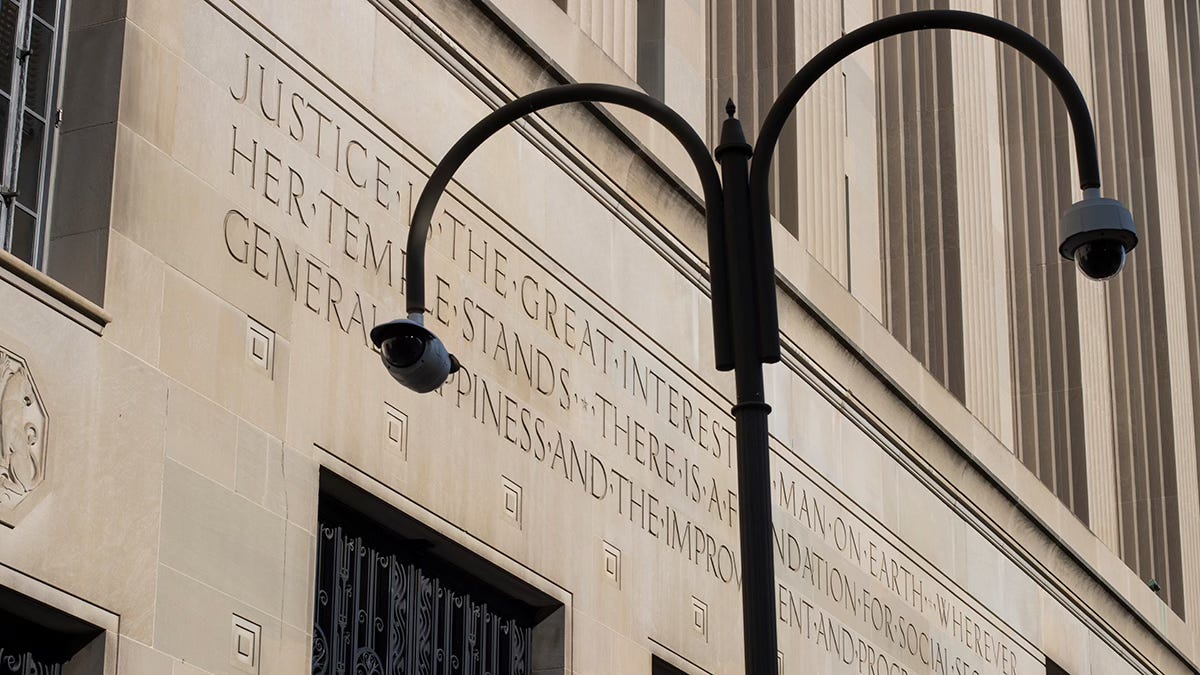Trump targets state climate actions — but he’ll need help from Congress and courts
The new executive order directs the DOJ to confront Big Oil’s headaches, but its authority is limited.
Just weeks after oil executives met with President Trump at the White House and asked him to do something about the growing number of state climate policies, laws, and lawsuits targeting their companies’ conduct, Trump is directing the Justice Department to “expeditiously take all appropriate action” to quash those initiatives, which he has deemed “fundamentally irreconcilable with my Administration’s objective to unleash American energy.”
While yesterday’s executive order alone has no direct impact, it instructs Attorney General Pam Bondi to take steps to “stop the enforcement of State laws and continuation of civil actions” that could impede the fossil fuel industry and “recommend any additional Presidential or legislative action necessary” within 60 days.
Trump’s order specifically names California’s cap-and-trade policies and Vermont and New York’s climate superfund laws, which require oil and gas companies to pay into a fund allocated for climate disaster adaptation and recovery. It also references the dozens of state and local climate lawsuits that argue oil and gas companies violated state laws by deceiving the public about the dangers of fossil fuels and aim to make them pay damages, which the order says would be “crippling.”
Pat Parenteau, an environmental law professor and senior fellow at Vermont Law School, called the order “chest thumping” since the Department of Justice has “no authority” to stop such state level actions without court orders or congressional action. The department could file briefs in support of the industry or join pending challenges to New York and Vermont’s climate superfund laws.
Trump’s order is “turning federalism on its head, because it’s saying the federal government should go around striking down state law willy-nilly, left and right,” said Parenteau. “But they can't do that without a court order and they’re not having a terribly successful time convincing the courts of anything.”
The executive order is “a clear attempt to silence communities demanding justice and accountability from the polluting corporations that have lied to the public for decades,” said Kathy Mulvey, the accountability campaign director for the Climate & Energy Program at the Union of Concerned Scientists (UCS). “State and local governments have both the authority and the responsibility to act, especially when federal leadership fails—and this overreaching order aims to intimidate state officials and obstruct that ability.”
What could the Justice Department recommend?
Big Oil has been lobbying Congress for some type of liability shield and “is hoping lawmakers include legal protection against climate lawsuits for oil companies in a coming Trump-endorsed bill," according to the Wall Street Journal. Similar to a 2005 law that protected gun manufacturers from liability, such an action could make it more difficult — if not impossible — for state governments and others to take fossil fuel companies to court.
“I doubt if that’s going to get passed by Congress,” said Robert Percival, a law professor and director of the University of Maryland’s environmental law program. “They’ve rejected such efforts in the past, and it would be tantamount to twenty years ago having Congress bail out the tobacco companies because the states were winning all these lawsuits against them for their deception of consumers.”
“What [they would be] saying is, there should be a special exception to consumer fraud and deception laws for the fossil fuel industry,“ Percival added.
Maggie Coulter, senior attorney at the Center for Biological Diversity (CBD), said she was most concerned about the potential for Trump to influence Congress. CBD, UCS and nearly 200 other groups including the Center for Climate Integrity, of which ExxonKnews is a project, sent a letter last month calling on Democrats in Congress to reject any provision that would immunize the fossil fuel industry.
“It’s becoming more and more clear that this is a priority of the fossil fuel industry — that this is what they’re asking for and we should keep our eyes peeled,” Coulter said. “Be wary of must-pass legislation that’s got poison pills in it.”
Proof the White House is “captured by fossil fuel interests”
Trump’s order was celebrated by the American Petroleum Institute, the country’s largest oil and gas trade association, which is named as a defendant in several consumer fraud lawsuits brought against Big Oil and has filed a legal action of its own challenging Vermont’s superfund law. The Trump order will “help restore the rule of law and ensure activist-driven campaigns do not stand in the way of ensuring the nation has access to an affordable and reliable energy supply,” said Ryan Meyers, API’s senior vice-president, in a statement.
The oil industry hasn’t gotten everything it wants — like many industries, it is set to suffer from the administration’s onslaught of tariffs. Still, in recent weeks, Trump has announced a direct email line for oil executives to request exemptions from regulations and signed an executive order for the federal government to dismantle rules for “beautiful clean coal.” Even before Trump took office, the oil industry was writing executive orders for him to sign, according to reporting from Politico.
“The White House has outsourced environmental and energy policy to the fossil fuel industry,” said Percival. When it comes to those matters, Percival said, the White House is “so captured by fossil fuel interests that when they say ‘jump’, Trump says ‘how high?’”

